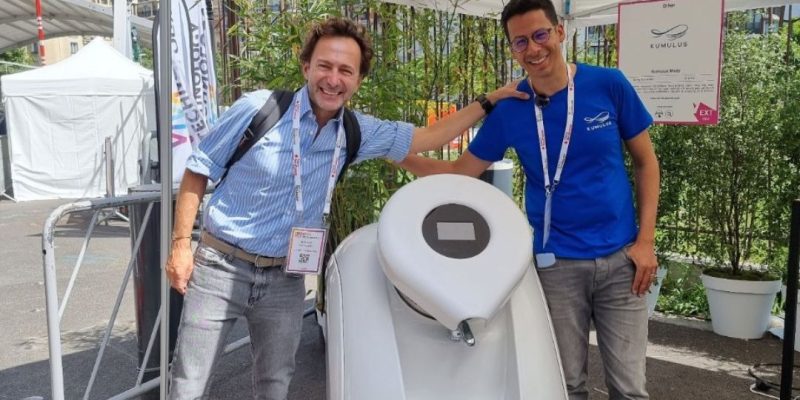A Tunisian startup, Kumulus water, developed a machine that extracts drinking water directly from the air and has successfully closed a 1 million euro pre-seed round. In addition to the Paris Techstars Accelerator, business angels, Flat6Labs, WILCO, and Bpifrance participated in the round.
These funds will allow the startup to improve its product further and even deliver its first pre-ordered copies.
Tunisia Water Industry
Among the Middle East and North Africa, Tunisia has achieved the highest access rates to water supply and sanitation services. By adopting an integrated strategy for the use of water based on scientific and technical studies, Tunisia has developed a complex and diverse water infrastructure allowing the country to mobilize and exploit available water resources.
Tunisia has limited water resources. As per the AQUASTAT database in 2016, the total renewable water resources were below the absolute water scarcity threshold. The exploitation of conventional water resources is very advanced, and it is expected that water demand, driven by population increases and improvements in living standards, could reach its maximum around the year 2030.
Read also: ThriveAgric Unveils Online Marketplace To Help One Million Small Farmers Thrive
Being aware of the problems engendered by charging for water, Tunisia has developed voluntary policies to support the control and the valuing of water resources. Considerable efforts have been deployed to develop all water resources using a variety of means (dams, collinear dams, collinear lakes, emission of sewage waters, desalination, drills, surface wells, treatment of used water, and recharging water tables.
About the Kumulus services
Kumulus is a company that operates in Tunisia’s drinking water field. Mohamed Ali Abid and Iheb Triki founded the company, and it creates thermal machines capable of producing several litres of drinking water per day. The firm exclusively uses humidity and solar energy as resources. Predictive algorithms are then utilized to increase water production and energy efficiency using data acquired via the Internet of Things. The system has elements for mineralization and filtering.
A solar-powered system is used to suck the air into the machine that Kumulus built. The moisture in the air is sorted out after passing through a series of filters, producing drinkable water. Consequently, the new business aims to solve Tunisia’s water shortage problem.
Kowry Energy Announces Solar Power Projects in Nigeria, Senegal, and Mali
The business founders have claimed that they intend to focus on “markets where there is no reliable supply of renewable drinking water or where water scarcity is so severe that it is a hardship on the local community.” The goal is to compete in markets without a dependable supply of renewable drinking water.
The company’s founders claim that Tunisia’s poorest inhabitants do not always have access to current options like bottled water, mobile cisterns, or nonrenewable groundwater. “A litre of mineral water costs around 10 cents in Tunisia and Egypt but more than 15 cents in Morocco. The company argued that the method created by Kumulus could generate 25 litres of water per day for less than 8 cents.
The Kumulus water machines will be offered for purchase or subscription-based delivery, with payments for each litre of water produced by the machine. Although there will be a range of sizes, the company will start with a machine that can create 20 to 30 litres of water daily. Another advantage is that populations without access to a public water supply will have access to a consistent drinking water supply, and there won’t be any need for disposable water bottles.
Kumulus received the POESAM International Grand Prize, worth 15,000 euros, on November 9, 2021. Orange funded and presented the prize. The Cameroonian startup business OuiCare won the top award and is now in second. A compliment will most likely enable the founders to accomplish their goals for the nation’s growth.




